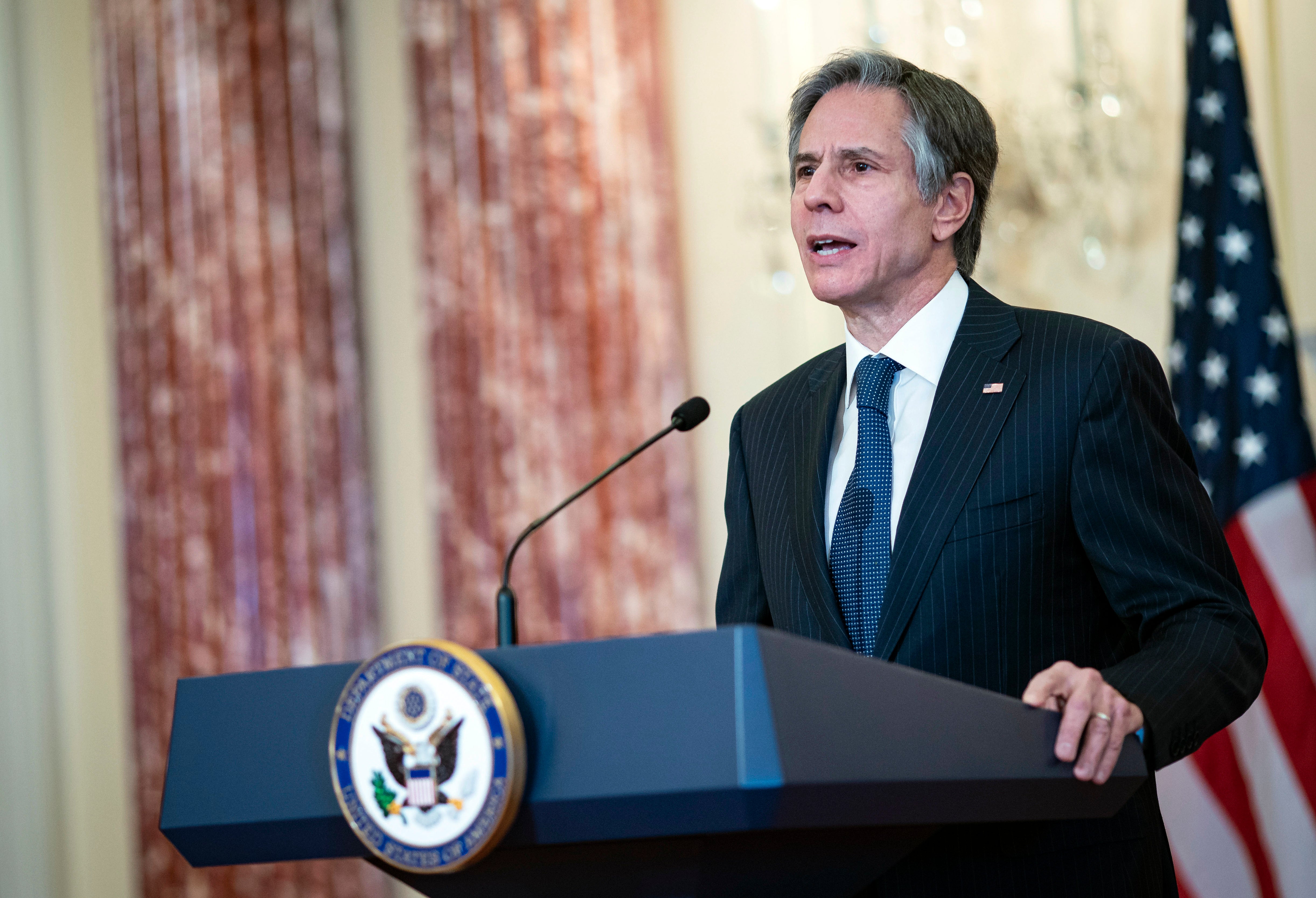US resumes funding to UN agency for Palestinian refugees
The Biden administration says it has resumed U.S. assistance to the Palestinians, including to the U.N. agency that deals with Palestinian refugees

Your support helps us to tell the story
From reproductive rights to climate change to Big Tech, The Independent is on the ground when the story is developing. Whether it's investigating the financials of Elon Musk's pro-Trump PAC or producing our latest documentary, 'The A Word', which shines a light on the American women fighting for reproductive rights, we know how important it is to parse out the facts from the messaging.
At such a critical moment in US history, we need reporters on the ground. Your donation allows us to keep sending journalists to speak to both sides of the story.
The Independent is trusted by Americans across the entire political spectrum. And unlike many other quality news outlets, we choose not to lock Americans out of our reporting and analysis with paywalls. We believe quality journalism should be available to everyone, paid for by those who can afford it.
Your support makes all the difference.The Biden administration said Wednesday it has resumed U.S. assistance to the Palestinians including to the U.N. agency that deals with Palestinian refugees, nearly all of which had been eliminated by former President Donald Trump
The State Department announced it would provide a total of $235 million to projects in the West Bank and Gaza as well as to the U.N. Relief and Works Agency, or UNRWA. The administration had previously announced $15 million for the Palestinians to combat the coronavirus pandemic. The resumption in assistance has raised concerns in Congress from pro-Israel lawmakers who say the money may violate U.S. law.
The Associated Press has previously reported that the administration notified Congress of its intent to ramp up aid to the Palestinians, but until Wednesday it had not publicly acknowledged any assistance other than that for COVID-19. The new assistance comes as the administration cements a new Mideast policy that in many ways is directly opposite of the one pursued by Trump.
“The United States is pleased to announce that, working with Congress, we plan to restart U.S. economic, development, and humanitarian assistance for the Palestinian people,” Secretary of State Antony Blinken said in a statement. He said the money includes $75 million in economic and development assistance in the West Bank and Gaza, $10 million for peacebuilding programs and $150 million for UNRWA.
Blinken sought to forestall congressional criticism by saying that “all assistance will be provided consistent with U.S. law,” but Republican members of Congress are already gearing up to fight the aid.
Blinken maintained U.S. support was key to advancing American interests in the region.
“U.S. foreign assistance for the Palestinian people serves important U.S. interests and values,” he said. “It provides critical relief to those in great need, fosters economic development, and supports Israeli-Palestinian understanding, security coordination and stability. It also aligns with the values and interests of our allies and partners.”
The Biden administration has made no secret of its belief that Trump’s approach to the Mideast, which alienated the Palestinians, was flawed and made prospects for peace less likely. The new assistance appears aimed at encouraging the Palestinians to return to negotiations with Israel, though there is no indication it will have that effect and Israel has yet to weigh in publicly.
Former Secretary of State Mike Pompeo and former U.S. Ambassador to the United Nations Nikki Haley had championed the removal of funding for the relief agency, suggesting it was responsible for perpetuating Palestinian poverty and questioning whether all of the millions of people it serves are actually refugees.
Just a week before leaving office, Pompeo accused UNRWA of being “riddled with waste, fraud (and) concerns of support to terrorism” and said there are fewer than 200,000 legitimate Palestinian refugees still alive.
In signaling opposition to the renewed funding, pro-Israel lawmakers note in particular that federal laws prohibit direct assistance to the Palestinian Authority or the provision of aid that benefits the PA as long as it continues to pay stipends to people convicted of anti-U.S. or anti-Israel attacks and their families.
Already, a handful of Republicans are preparing to challenge the aid, maintaining that it violates the so-called Taylor Force and the Anti-Terrorism Clarification acts, both of which passed with strong bipartisan support.
“We call on you to halt these expenditures until the State Department accounts for statutory restrictions and remedies known deficiencies in the distribution of such assistance, which have for years promoted and facilitated terrorism against Americans and Israelis," Sen. Ted Cruz, R-Texas, said in a draft letter to be sent to Blinken that about a dozen other GOP lawmakers are expected to sign.
The resumption of assistance comes just a week after the nonpartisan Government Accountability Office issued a report that found the U.S. government had not properly vetted all of its Palestinian funding recipients for U.S. antiterrorism criteria as required by law between 2015 and 2019, when Trump severed most of the aid.
While it said the U.S. Agency for International Development had followed the law with respect to people and groups it funded directly, it had not done the same with entities, known as sub-grantees, to which those groups then distributed taxpayer dollars. “If funding resumes, we recommend measures to improve compliance,” said the GAO report.